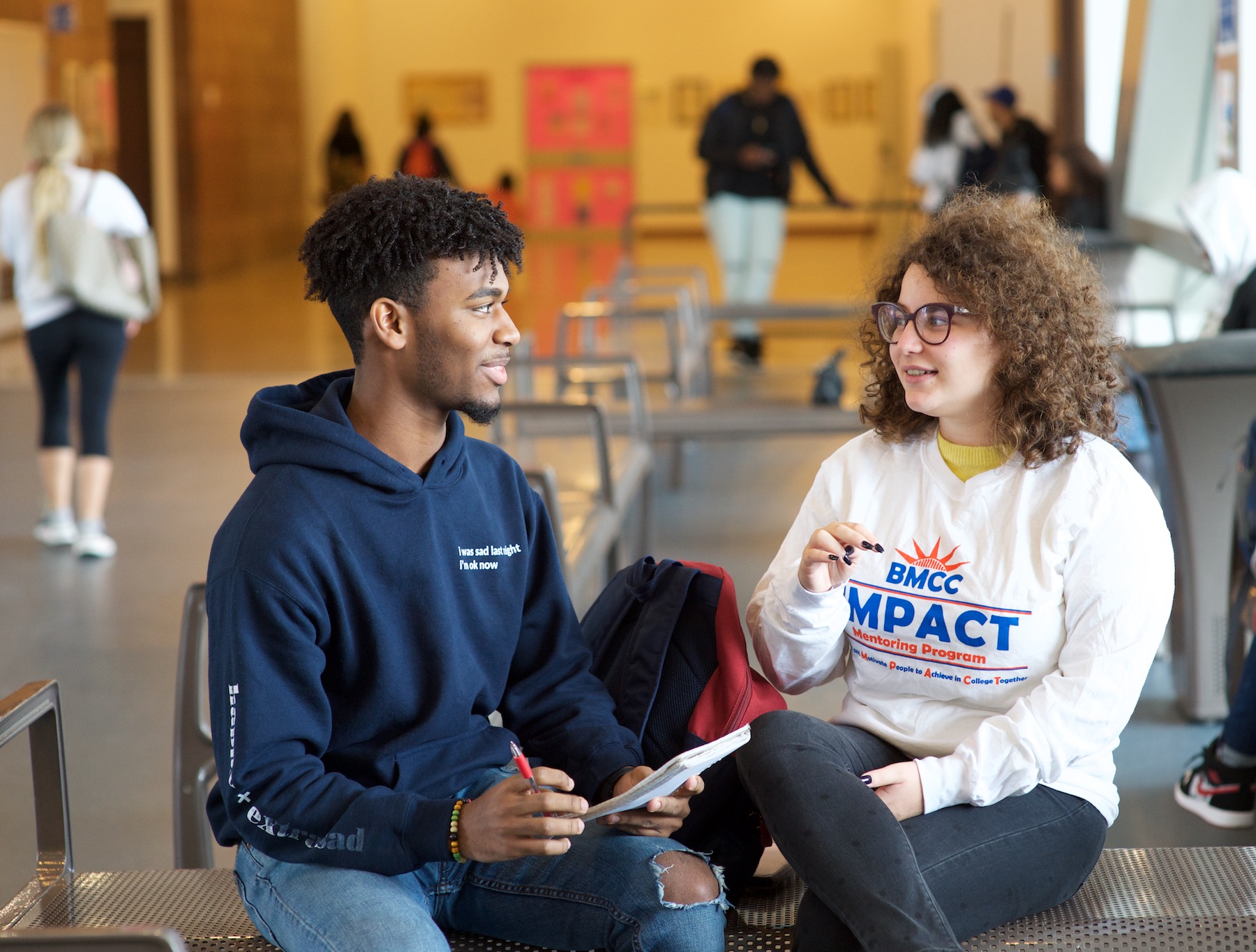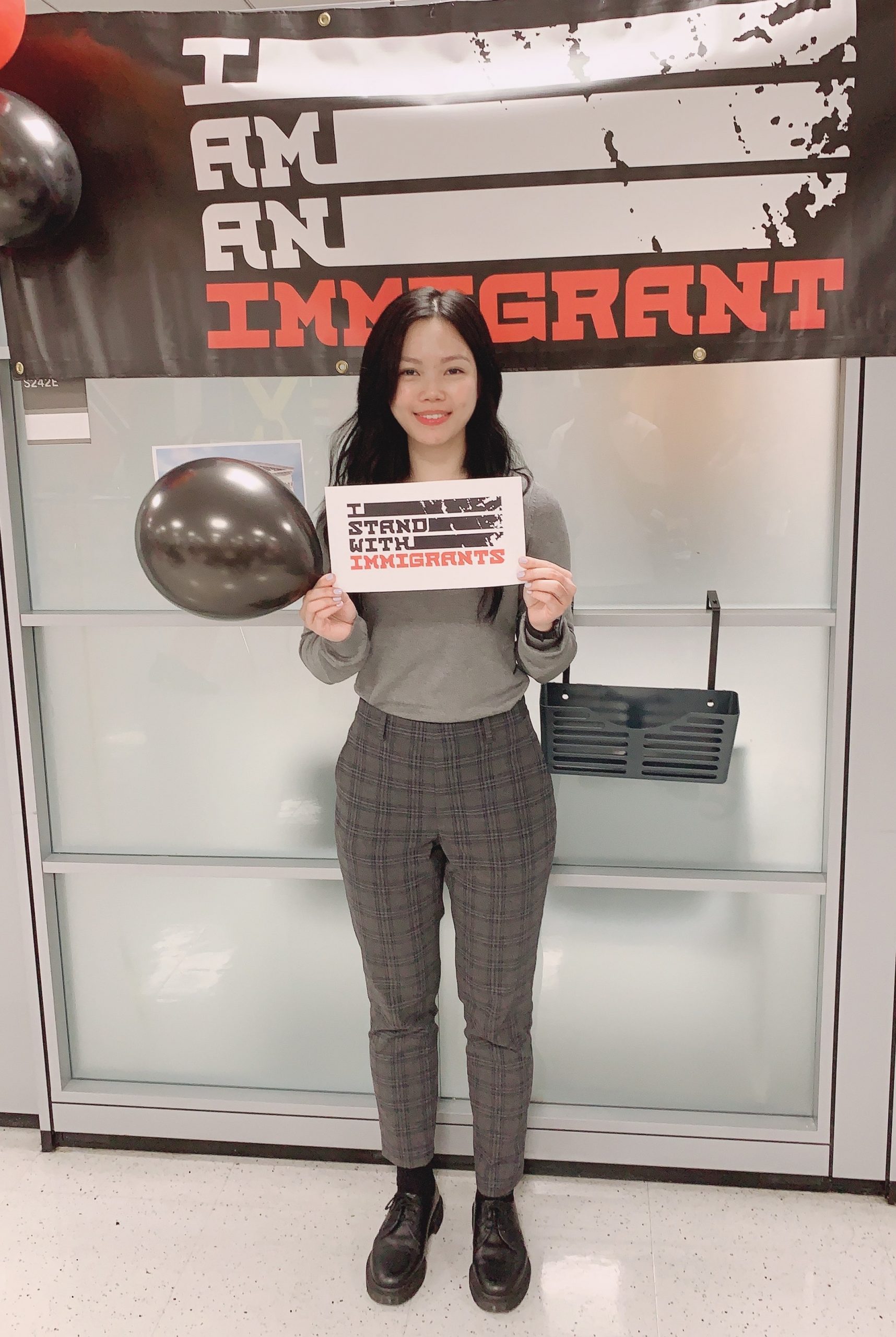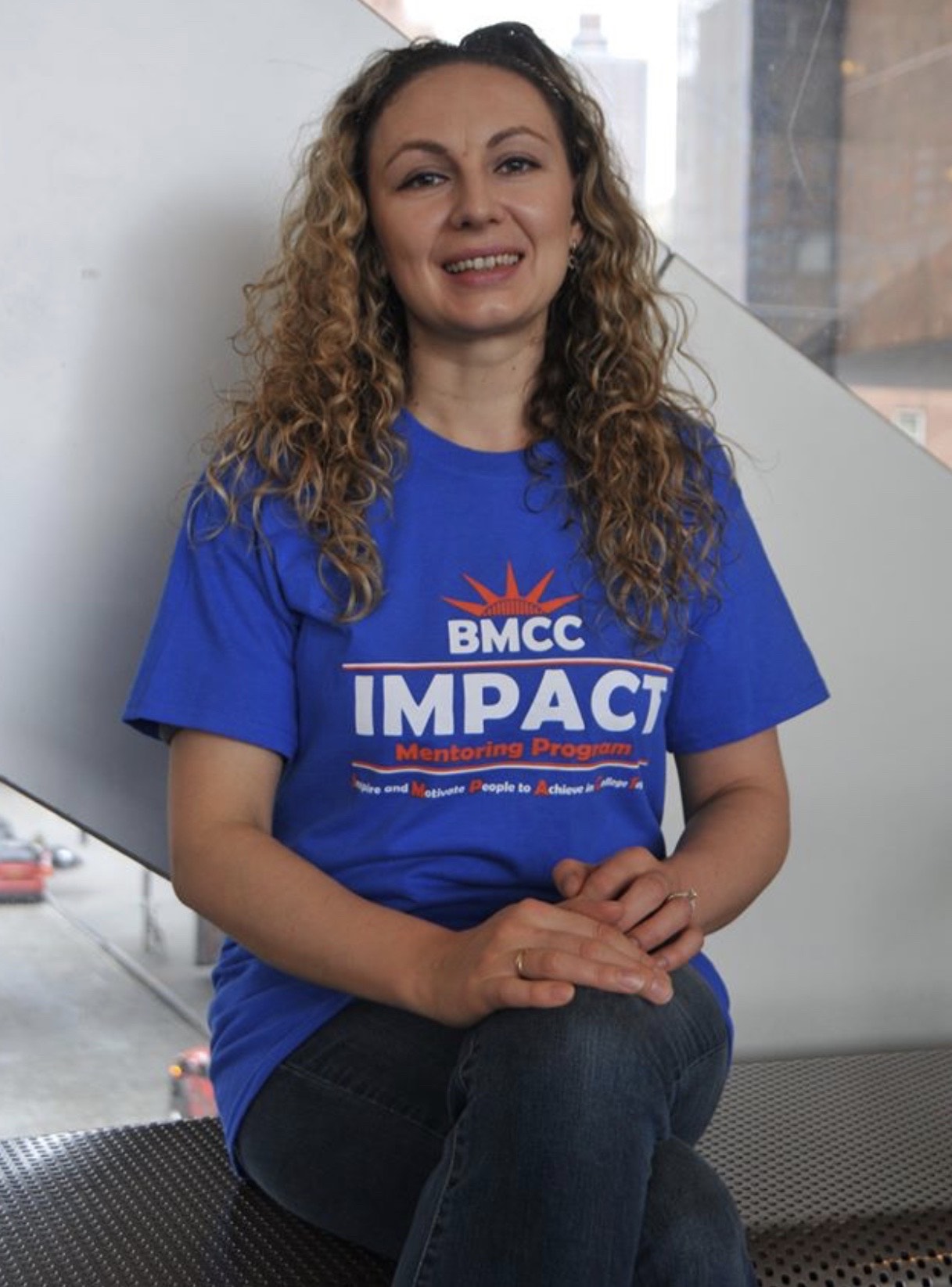
June 17, 2020
When a global pandemic forced Borough of Manhattan Community College (BMCC/CUNY) to move abruptly to a distance-learning format in mid-March, students in the BMCC Inspires and Motivates People to Achieve in College Together (IMPACT) peer mentoring program were already engaged in a structure to support their studies.
The question was, how to adapt that structure to a virtual format.
“When the state’s stay-at-home directive first went into effect, we were determined to find ways to keep our campus engagement high and to maintain our network of support,” says Denise DellaPorta, Student Life Specialist for Peer Mentoring and Success, in the BMCC Office of Student Affairs.
“We first looked to online opportunities to enable our mentees to continue meeting weekly with their mentors,” she says. “We had to be open and flexible to whatever the mentees were comfortable with — Zoom, email, text, FaceTime. We have also encouraged our student mentors to participate in town hall meetings and opportunities like LinkedIn Learning Workshops and virtual mentoring meet ups.”

IMPACT peer mentor and nursing major Binh Au has explored new strategies, as well.
“I spent time learning Zoom, and shared a tutorial on it with my mentees,” says Au. “In the beginning, I was focusing only on them, the mentees. Then, I realized, if I tell them a little bit about me, if I share that I’m having some difficulties learning online, too, it relaxes them and strengthens our bonds.”
Au also sifts through the emails students receive, letting them know about discounts, services and opportunities at BMCC, and forwards some of them to mentees who might be interested.
This is all made easier by the fact that Au already had a strong relationship with her mentees when the stay-at-home order went into effect, and it brings up an issue DellaPorta is looking at now.
“Since the switch to a virtual program happened mid-semester, we had the advantage of starting out with a certain level of rapport,” she says. “How will we create rapport with a group that starts out with an online program, in Fall 2020?”
She points out, for example, that some students won’t have the privacy at home to speak candidly with their mentor.
“How do you build rapport and care if you only have email or texting as an option?,” she says. “We’re facing challenges, but we’re trying to think outside the box so we’re ready for another virtual semester this fall.”
Support from the Heckscher Foundation enables the program to double
In Fall 2019, the Heckscher Foundation for Children awarded the IMPACT mentoring program a one-year, catalytic grant of $220,000, and BMCC agreed to match that amount for a second year.
As reported on the Heckscher website, the initial grant has doubled the size of BMCC’s IMPACT Peer Mentoring program.
Meeting online, DellaPorta and her team are maximizing strides made with Heckscher’s support, leveraging the program’s strengths to keep students on track. They are also carefully watching participant data.
“Our 232-member cohort is doing better than we thought they would,” she says. “We’re still seeing some high GPAs. That speaks to the resilience of the mentees, and the same goes for our mentors.”
The program’s end-of-semester feedback sessions reflect that resiliency. “Our mentors are telling us that having other students count on them was a factor in their own persistence,” DellaPorta says.

IMPACT peer mentor Olga Krotova has kept up with her studies even as she is home schooling her eight-year-old son and staying in close contact with four BMCC mentees.
A Liberal Arts major who is waiting to hear if she has been accepted to the BMCC Nursing program, Krotova appreciates the academic challenges her mentees face.
“I know what it is like to drive yourself when things are difficult, to speak a different language, to be given hard materials to learn,” she says. “I started quizzing myself and using flash cards, and that helped. To get the concepts down, I would ‘teach’ the material I was learning to my family members, like my husband; I would tell him all that I learned about the muscles of the body. I share these things with my mentees.”
Krotova also appreciates the support she gets from her fellow mentors.
“We help each other,” she says. “We have a regular Zoom call and we talk about things we have shared with our mentees. The IMPACT training was intense, and it taught us how to be patient, how to listen carefully. We pass on things to our mentees like how to motivate yourself and prioritize goals. We’re all learning together.”
Selecting mentors, a critical process, moves to virtual format
Meeting in Zoom, the IMPACT Peer Mentoring program team is selecting mentors from 160 applications.
“We had two rounds of virtual interviews and we’re now in round two,” DellaPorta says.
“Besides the application packet, we look at emotional intelligence, problem-solving skills and what we call, ‘college knowledge’ — an understanding of how to be a successful student and make the most of opportunities at BMCC.”
The team hopes finalize their selections by June 30 and for the rest of the summer, select mentees.
The structure of the IMPACT Peer Mentoring program is based on what DellaPorta calls, “a synergistic model.”
“The pedagogy behind the IMPACT peer mentoring program is that students have a lot to each and learn from each other. The training sets a foundation for lifelong learning, collaboration and problem solving. At the same time, student mentors are growing in leadership and self-awareness, so they become more confident role models.”
When a student first joins the program as a mentor, she says, there is a steep learning curve.
“We not only pair mentors with mentees, we enlist experienced mentors to guide the new mentors,” DellaPorta says. “The new mentors learn to be more compassionate; to listen, not just ‘fix’ things.”
The student mentors must also maintain a GPA of 2.75 or higher so they can model academic success, and demonstrate excellent interpersonal skills and strong campus resource knowledge.
“They might be working with a mentee who is an undocumented student, a victim of sexual assault, a student parent or someone who is struggling academically or with personal issues,” she says. “The mentors need to know how to be an ally and advocate, honoring someone else’s journey and experience.”
Student mentors build confidence they pass on to their mentees
The IMPACT mentor training builds on the students’ strengths and interests that compel them, “and that creates buy-in,” DellaPorta says.
She clarifies that the program doesn’t try to define the mentors’ political or world view.
“The thing that drives their social justice agenda could be an earthquake in Turkey, a hurricane in Puerto Rico, climate change, Black Lives Matter — they bring their advocacy or activist focus, and we build activities around that, so they can share their passion and advocacy with other students in the program,” she says.
The program’s sole task from July through August 10 “is to reimagine this program virtually,” DellaPorta says. “I’m going to be working with 12 experienced mentors to get their feedback. How can we stay the same and do what we do best, but do it in a changing world?”
When IMPACT Peer Mentoring starts in Fall 2020, it won’t look like it did at the start of the Spring 2020 semester — but core values and goals of the program remain unchanged.
“Bottom line, peer mentoring is a best practice for helping students persist and succeed at college,” DellaPorta says. “Empowered and confident students are going to inspire and motivate each other to achieve more at BMCC. This contributes to college retention, one successful student at a time.”
STORY HIGHLIGHTS
- BMCC Inspires and Motivates People to Achieve in College Together (IMPACT) Peer Mentoring program matches experienced students with peers who need support navigating college life
- In Fall 2019, the Heckscher Foundation for Children awarded the program a one-year, catalytic grant of $220,000
- Since CUNY’s move to distance learning in mid-March, the program has found new ways to sustain peer mentoring

